“However," Kadkhodaei said, "it takes time, and Iran should take some reciprocal action against US aerial violations."
In an interview with the Tehran Times, Kadkhodaei elaborates on his view about reciprocal action, saying, "It does not mean the same or similar action. It is the proportional action."
In the interview, the Guardian Council official describes harassment of the civil aircraft by US fighter jets as “aerial terrorism”.
Following is the text of the interview:
Would you please explain what you mean by "reciprocal action" and how it is defined in international, right?
From the international law perspective, the governments are rulers, and they are independent. However, there are few international references to resolve international conflicts; The International Court of Justice is the only main reference that we know. This court has its judicial procedures and measures. In the past, there was a reference that was named "Permanent Court of International Justice," which was turned into the International Court of Justice after World War II (1939-1945). During the past two decades, the International Criminal Court is also added to the United Nations and some special courts like Special Tribunal for Lebanon, the International Criminal Tribunal for Rwanda and in the past the International Military Tribunal for the Far East or Tokyo Trial are other juridical references worked under auspicious of the Charter of the United Nations.
Filing a complaint in an international body, especially at the International Court of Justice, needs difficult preliminaries. Firstly, the governments should agree on bringing the issue to the court. However, there are some international organizations for professional issues like the International Telecommunication Union and the International Civil Aviation Organization. These organizations sometimes solve problems between governments in some special cases.
Generally solving a case in international bodies takes a lot of time. For example, the filing of Iran in the Registry of the Court proceedings against the US concerning the destruction of Iranian oil platforms (before the end of Iran-Iraq war) took 12 years and did not end in the desired result; however, it is still considered as its fair votes. The governments, mostly in the past and rarely today, use reciprocal action against other governments or file the case at the International Court of Justice, which takes time, and there is no guarantee for the desired result.
In international law, reciprocal action does not mean the same or similar action. It is the Proportional Action. The proportion is the main principle, which should be observed in these issues. Maybe a government violates the sovereignty of another country in which its government retaliates it in another situation. So it is not a similar action. I always announce, and people expect that [the government] takes proportional action in different cases like the detention of Iranian Oil tanker in October 2019. However, the proportional action is not against the legal lawsuit.
Fortunately, Iran takes action against the issues, and it was obvious that we take action. It was a positive step despite previous cases that the government does not define its stance. It was aerial banditry and aerial terrorism in which innocent people traveling with a passenger airplane, noticed with their own eyes, that they were being threatened. Disturbing passenger airplane is against civil right, international laws and violate the sovereignty of a government. Above all, there is a more important issue in aerial terrorism, and that was how does the US justify establishing an airbase beyond its border and harass other passenger airplanes under the pretext of protecting its base? Does the US have permission to have an airbase in Syria? This is aerial banditry in the territory of another country by US fighters.
Governments have the right to preventive self-defense. That means that if a violation happens and the government cannot ask help from any international organization at the moment, it should take appropriate action and defend. It is also accepted in customary international law, although one should observe the action should be proportionate in all cases.
You said the previous cases proposed by Iran in the international court, saying that it takes a lot of time. For example, the case of Iran's oil platforms was not concluded after more than a decade. In general, has Iran had any achievement by submitting files in international judicial systems?
One cannot deny the profits of Iran's presence in international courts. Its presence is good and should be done on time. Iran should not avoid submitting complaints in these bodies; however, it is not wise only to submit the lawsuit in these places. Immediate action should be taken when the Iranians and their civil right are threatened in the form of proportional action or preventive self-defense. In this case, the violator stops the repetition of the action.
One of the problems that governments face is that there is no guarantee for enforcing the court's rulings. In current geography, only agreements between governments can execute such a verdict. Considering the power-sharing between world countries, some of them influence the decisions of the United Nations. Can anyone trust the fairness of the verdict issued by the international court and their execution?
International law should be defined in the framework of the international system. The current international law system is based on great powers' hegemony. For instance, when you look at the civil rights issued after World War II, there is a veto right for five countries. In the current international law, one superpower has special privileges and has a great share from international law.
The influence of such governments in international courts can violate the rights of weaker governments and those who have not a vast international relationship. The United Nations Security Council has issued several resolutions against the Zionist regime. None of these resolutions is implemented since there is no guarantee for it. In books and articles, the violation of Palestinians is condemned, but nothing has been done. So international law has some weak points. We should assess international law in its framework. International resolutions may go into effect in one place and time, but most of the time international decisions go without guarantee.
The 25-Year Iran-China Comprehensive Partnership as well as the Iran-Russia agreement have triggered controversy at home and abroad and also in media. What is the role of the Guardian Council in the implementation of the agreements?
Some challenges about these agreements come from the enemies of the Islamic Republic of Iran who make accusations against Iranian officials. This shows that Iran is on the right way and inks agreements with countries that are truly in line with its will. The US has economic interaction with China and Russia as well as Europe. Hence, this turmoil against the Iran-China agreement is an intervention in Iran's domestic affairs, which is condemned.
Iran is an independent country, and its government signs agreement with countries that meet their benefits.
From the aspect of legal duties, for the Guardian Council, these agreements are like other agreements between countries. International contracts and agreements are based on the Constitution of the Islamic Republic of Iran. After negotiations in the government, Majlis approves it, and then the Guardian Council decides about its contradiction with Islam and the constitution.
As the newly assigned head of the Guardian Council's research center, we want to know your approach towards your new mission. In recent years, the duties of the council are known to some extent. In some political events like elections, people become curious about the council's role. Since the victory of the Islamic Revolution in 1979, one of the main concerns of the Islamic Revolution’s theorists is to "export the revolution." When we talk about the exporting of revolution, we cannot disregard the Islamic government, its executive structure, and its intellectual background. However, it seems that there is not much effort to introduce the Guardian Council as one of Iran's supervisory bodies. This is not only about the Middle West and Far West countries but also in the Islamic world, which support the resistance movement. Do you believe in any international audience for the Guardian Council? Does the research center have any plan for this issue?
The Guardian Council has such a view for sure. Since we believe that we wrote the first Islamic constitution, we think that our country's structure and political issues can be applicable in other Islamic countries and the world. Some actions were taken during the past years. We have some deals with other countries like Pakistan, India, and Turkey. Some delegations exchange ideas with each other. Even we help another country to hold an election. We educate their staff, and we teach them about our election system.
Although we have a great capacity not mentioned as a model right now, this is because of some domestic issues and some international problems. For example, maybe an Islamic country does not yearn to apply our system. We always cooperate with countries that asked us. We cooperate in writing and compiling the constitution in some countries and provide some advice for them.
Some people interested in Iran's affairs make mistakes and compare the Guardian Council with the Constitutional Council in France. What is your comment?
The constitutions are different from each other. None of the enactments turns into law unless the Guardian Council approves it. In many countries, supervisory institutions comment on an enactment after it becomes a law. In the US, one can complain after an enactment becomes a law.
During our dealings with some European countries, including Romania, we realized that they are interested in the Guardian Council's structure and tasks. They think this is in line with their duties, and they don't have such a system in their constitution.
In Pakistan, the Council of Islamic Ideology is supervised by the president and is composed of religious consultants. Whenever parliament recognizes that an issue needs a religious consulting issue, the president orders the council to comment. However, the parliament can accept or refuse the comment.
Some Pakistani friends who came to Iran and got introduced to the Guardian Council praise the council's structure and status. One of the main strategies of the research center is to introduce the Guardian Council at the international level.
First published in Tehran Times


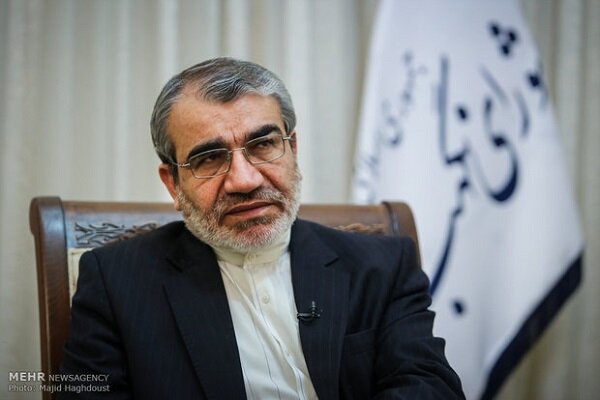
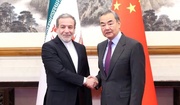
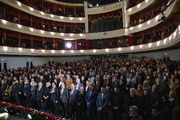

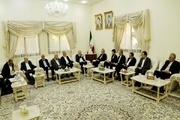
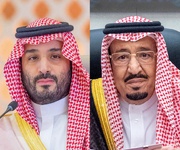
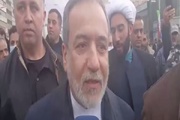
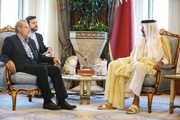
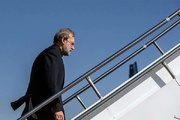
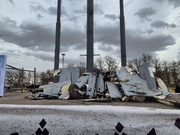






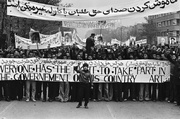



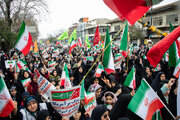
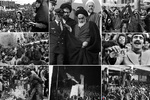
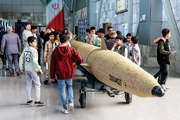

Your Comment